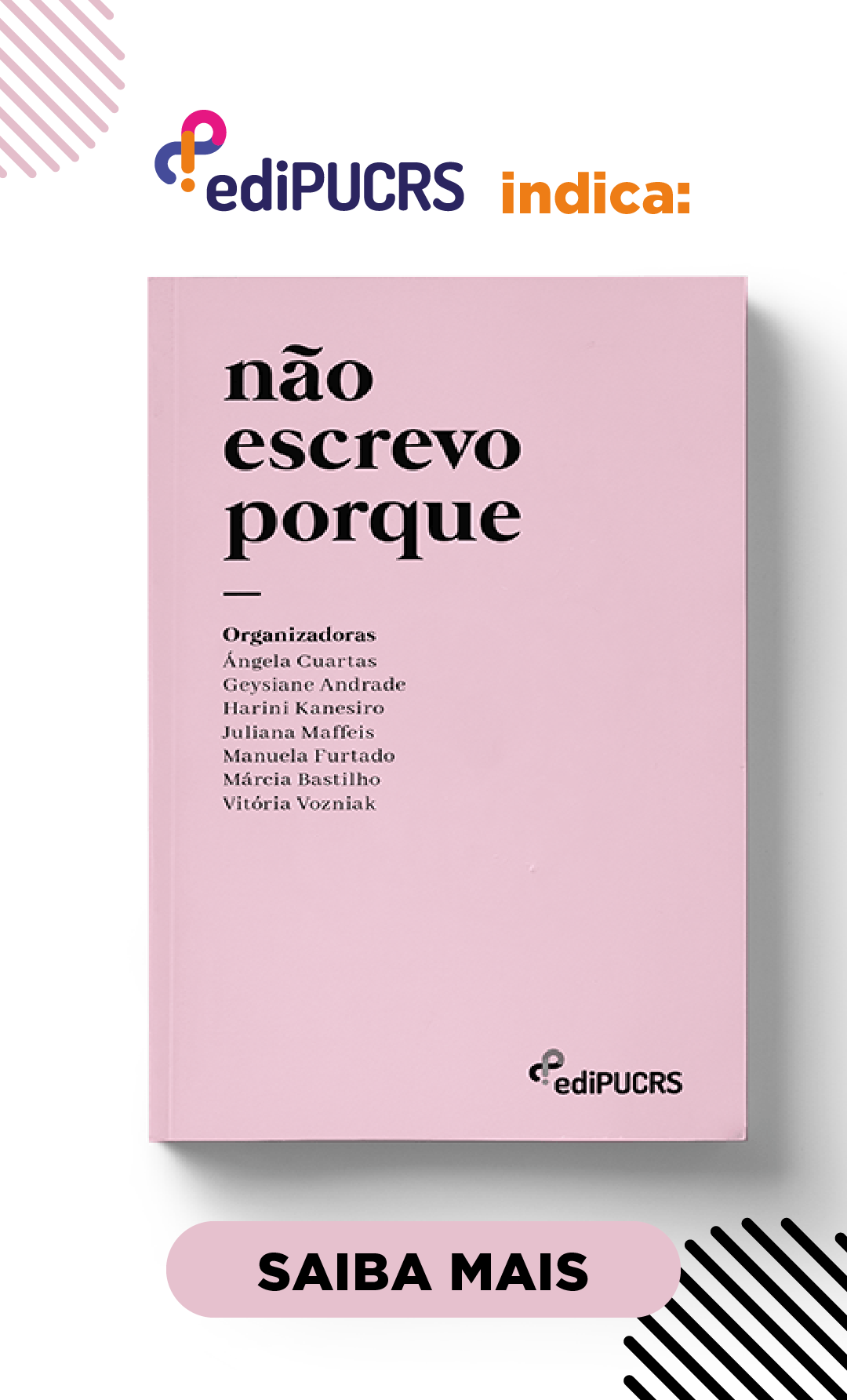A língua inglesa na escola sob o ponto de vista de alunos e professores
Implicações no ensino e na aprendizagem
DOI:
https://doi.org/10.15448/2178-3640.2021.1.39782Palavras-chave:
língua inglesa, ensino e aprendizagem, visão de alunos e professoresResumo
Considerando o inglês como um idioma que tem assumido um papel cada vez mais importante no mundo globalizado em que vivemos, faz-se necessário avaliar de que forma essa língua tem sido vista e, consequentemente, ensinada nas escolas. Desse modo, o presente artigo analisa pontos de vista de alunos e professores sobre a língua inglesa, bem como implicações didático-metodológicas do ensino da língua em sala de aula, com base em entrevistas não dirigidas semiestruturadas com professores de inglês e com alunos do terceiro ano do ensino médio de duas escolas públicas estaduais do Vale do Taquari, no Rio Grande do Sul, Brasil. Os resultados apontam que a língua inglesa tem sido vista como uma língua franca global, possível de ser utilizada em diferentes contextos comunicativos como língua adicional, trazendo muitos benefícios aos falantes e, por conseguinte, fazendo com que o interesse por sua aprendizagem aumente. No entanto, constatou-se que a metodologia adotada nas escolas não proporciona o desenvolvimento das habilidades necessárias para que esse idioma seja colocado em uso, sendo esse um fator preponderante para a desmotivação dos estudantes, que não veem razão para estudar regras gramaticais de forma descontextualizada e repetitiva. Sinaliza -se, portanto, que o ensino de inglês na escola precisa estar voltado para o desenvolvimento de projetos baseados em tarefas que busquem proporcionar aos estudantes situações reais de uso da língua, através das quais seja possível o desenvolvimento de uma competência linguística voltada para o princípio da inteligibilidade.
Downloads
Referências
Anjos, F. A. (2016). O inglês como língua franca global da contemporaneidade: em defesa de uma pedagogia pela sua desestrangeirização e descolonização. Revista Letra Capital, 1(2), 95-117. https://docgo.net/view-doc.html?utm_source=o-ingles-como-lingua-franca-global-da-contemporaneidade-em-defesa-de-uma-pedagogia-pela-sua-desestrangeirizacao-e-descolonizacao
Berto, P. L. (2009). English as a lingua franca: a study of brazilian english teachers’ attitudes and opinions towards it [Dissertação de mestrado em Estudos ingleses e americanos, Universidade de Lisboa]. https://repositorio.ul.pt/bitstream/10451/1711/1/21665_ulfl071889_tm.pdf.
Birello, M. (2012) Teacher Cognition and Language Teacher Education: beliefs and practice. A conversation with Simon Borg. Bellaterra Journal of Teaching & Learning Language & Literature, 5(2), 88-94. https://www.raco.cat/index.php/Bellaterra/article/view/253372/340138.
Brasil. (2017). Lei nº 13.415, de 16 de fevereiro de 2017. Altera as Leis nº 9.394, de 20 de dezembro de 1996, que estabelece as diretrizes e bases da educação nacional, e 11.494, de 20 de junho 2007. http://www.planalto.gov.br/ccivil_03/_Ato2015-2018/2017/Lei/L13415.htm
Brasil. (2018). Ministério da Educação. Secretaria da Educação Básica. Base Nacional Comum Curricular. http://basenacionalcomum.mec.gov.br/images/BNCC_EI_EF_110518_versaofinal_site.pdf
Brasil. (2000). Parâmetros Curriculares Nacionais Ensino Médio: Linguagens, Códigos e suas Tecnologias. MEC http://portal.mec.gov.br/seb/arquivos/pdf/14_24.pdf
Brasil. (1998). Secretaria de Educação Fundamental. Parâmetros Curriculares Nacionais: terceiro e quarto ciclos do ensino fundamental: língua estrangeira / Secretaria de Educação Fundamental. MEC/SEF. http://portal.mec.gov.br/seb/arquivos/pdf/pcn_estrangeira.pdf
British Council. (2014). Demandas de Aprendizagem de Inglês no Brasil. Elaborado com exclusividade para o British Council pelo Instituto de Pesquisas Data Popular. Teaching English. British Council Teaching English. https://www.britishcouncil.org.br/sites/default/files/demandas_de_aprendizagempesquisaco mpleta.pdf
British Council. (2015). O Ensino de Inglês na Educação Pública Brasileira. Elaborado com exclusividade para o British Council pelo Instituto de Pesquisas Plano CDE. Teaching English. British Council. https://www.britishcouncil.org.br/sites/default/files/estudo_oensinodoinglesnaeducacaopublicabrasileira.pdf
Coelho, H. S. H. (2005). “É possível aprender inglês na escola?” Crenças de professores e alunos sobre o ensino de inglês em escolas públicas [Faculdade de Letras da UFMG].
Crystal, D. (2003). English as a global language (2. ed.). Cambridge University Press. http://culturaldiplomacy.org/academy/pdf/research/books/nation_branding/English_As_A_Global_Language_-_David_Crystal.pdf
Jenkins, J. (2009). English as a lingua franca: interpretations and attitudes. World Englishes, 28(2), 200-207. https://www.researchgate.net/publication/227663650_English_as_a_Lingua_Franca_interpretations_and_attitudes
Leffa, V. J. (2012). Ensino de línguas: passado, presente e futuro. Rev. Est. Ling., 20(2), 389-411. http://periodicos.letras.ufmg.br/index.php/relin/article/view/2755/2710
Leffa, V. J., & Irala, V. B. (2014). O ensino de outra(s) língua(s) na contemporaneidade: questões conceituais e metodológicas. In Leffa V. J., & Irala V. B. (Orgs.), Uma espiadinha na sala de aula: ensinando línguas adicionais no Brasil (v. 1, pp. 21-48). Educat. http://www.leffa.pro.br/textos/trabalhos/03_Leffa_Valesca.pdf
Marzari, G. Q., & Badke, M. R. (2013). Ensino e aprendizagem de língua inglesa em escolas públicas de Santa Maria/RS. PUCRS. https://www.maxwell.vrac.pucrio.br/21827/21827.pdfxxvmi=qp7pfcf0api2a2jmhea2c0zdochgcqcsgjjwv0w7qp91ssnaixdkzcznph4rihu0bfwxf5fgvohoi6o142m4ewruewwxoszp8vxnce5xtnnmtnnzqa3v7v1m3xlsqki0rhntvt3qhqdbf2b6dfclldipb4iso2shjrlglphdhvpwx2dbhfw4tgtukczker2zkoggezkvuatsc75unczhssne6m0lf2lar2hv1cswnwq15vvsz6lszzhgmhsckedc
Rio Grande do Sul. (2009). Secretaria de Estado da Educação. Departamento Pedagógico (Org.). Referenciais Curriculares do Estado do Rio Grande do Sul: Linguagens, Códigos e suas Tecnologias. SE/DP. https://servicos.educacao.rs.gov.br/dados/refer_curric_vol1.pdf
Rosa, P. A. (2016). O inglês como língua franca na visão dos professores em exercício da educação básica. Fólio – Revista de Letras Vitória da Conquista, 8(1), 383-412. https://www.academia.edu/28988346/o_ingl%c3%8as_como_l%c3%8dngua_franca_na_vis%c3%83o_dos_professores_em_exerc%c3%8dcio_da_educa%c3%87%c3%83o_b%c3%81sica
Schlatter, M., & Garcez, P.de M. (2012). Línguas adicionais na escola: aprendizagens colaborativas em inglês. Edelbra.
Selhorst, L. A., & Carvalho, R. de C. M. de. (2017). O inglês na visão dos alunos: um estudo de caso em uma escola pública. BELT, 8(1), 91- 101.
Downloads
Publicado
Como Citar
Edição
Seção
Licença
Copyright (c) 2021 BELT - Brazilian English Language Teaching Journal

Este trabalho está licenciado sob uma licença Creative Commons Attribution 4.0 International License.
Direitos Autorais
A submissão de originais para a BELT - Brazilian English Language Teaching Journal implica na transferência, pelos autores, dos direitos de publicação. Os direitos autorais para os artigos publicados nesta revista são do autor, com direitos da revista sobre a primeira publicação. Os autores somente poderão utilizar os mesmos resultados em outras publicações indicando claramente a BELT - Brazilian English Language Teaching Journal como o meio da publicação original.
Licença Creative Commons
Exceto onde especificado diferentemente, aplicam-se à matéria publicada neste periódico os termos de uma licença Creative Commons Atribuição 4.0 Internacional, que permite o uso irrestrito, a distribuição e a reprodução em qualquer meio desde que a publicação original seja corretamente citada.





